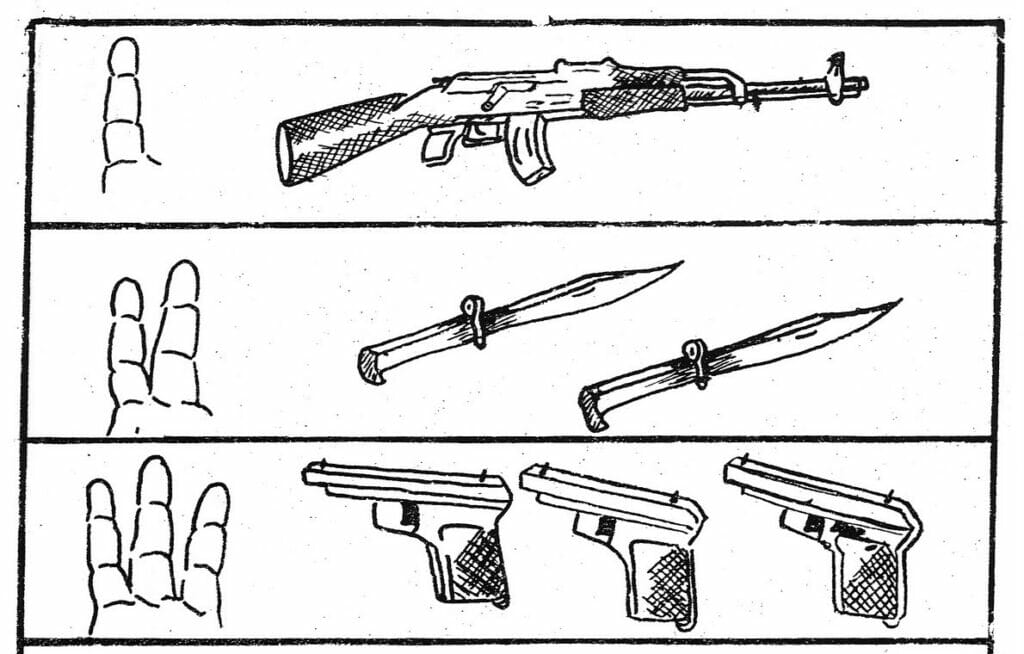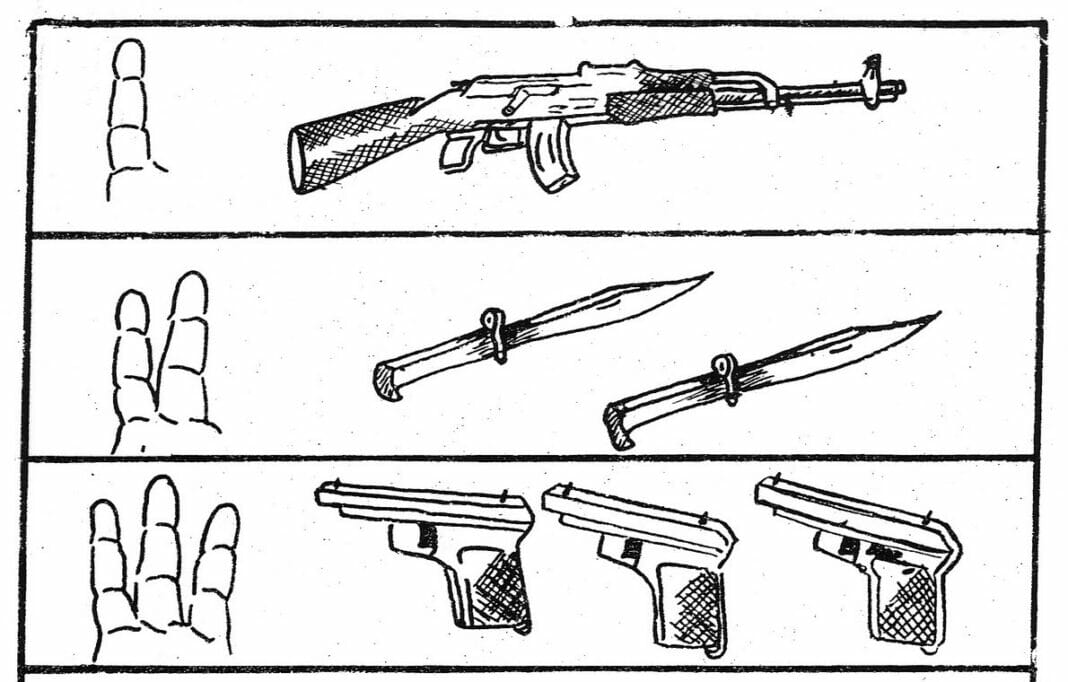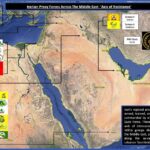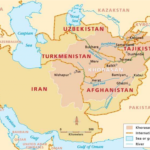As an observer, if your belief tells you that terrorism started with al-Qaeda attacking the World Trade Center in New York on September 11, 2001 or the attack on the US embassy in Beirut, your understanding of the background is incomplete.
This is something that must be understood.
Terrorism is the organic by-product of the radicalization of the Muslim world that started with the Soviet invasion of Afghanistan. When a massive group of people is motivated, mobilized and armed for a specific objective, the global diaspora cannot blame the victims, it must place the blame on those who designed the blueprint for this cancer.
Sadly, what was really happening wasn’t taken seriously in terms of mid or long-term potential effects of a short-sighted strategy that has devastated the world. For the United States, they saw a way to defeat their Cold War enemy without the war ever coming near their shores. The decisions made in the US Congress, US Senate, the Pentagon, the CIA, and, ultimately, The White House during the Soviet invasion of Afghanistan have repeatedly detonated across this globe, in various forms of conflict, all under a single ideology.
An informed leader would have taken immediate measures to reverse the strategy employed during the invasion when the last Soviet soldier left Afghanistan in February 1989. An informed leader would have taken immediate steps to correct the ideology of warfare that had been forced upon a people. An informed leader would not have closed their eyes for decades, allowing the problem to spread, inflame and engulf the globe.
Post 9/11 many uninformed leaders came forward to tell their versions of the story, always sprinkled with the salsa of “democracy” and “freedom,” in the end, the problem not only remained but was exponentially expanded.
There are no informed leaders, just personally motivated ones. Personally motivated because they are not concerned with the body counts on foreign soil nor concerned with the body counts of their own military.
The problem is not the terrorism, but the radicalization that no one wishes to realistically conquer.
Pakistan has been caught in the middle. Unable to control the rapidly spreading violent ideologies and unable to achieve a comprehensive victory against terrorist groups, Pakistan became the target of the international community without understanding where the real problem begins, or how to solve it.
Pakistan’s opportunities are limited only by Pakistan’s inability to understand, and sometimes refusal to do, what needs to be accomplished to achieve those opportunities.
That’s the honest position that Pakistan has yet to understand or accept, which has made a comprehensive victory against radicalization and terrorism impossible. While Pakistan has seen significant success against terrorism, it has not been able to achieve any real progress in permanently eliminating the problem.
Understanding Pakistan’s long-running struggle with radicalization and terrorism takes a great deal of historical context, mixed with an understanding of quiet alliances between jihadi groups and political parties, and getting a grasp on the radical madrassa culture in Pakistan, which has spread very quickly throughout the country since the time of the first Afghan war with the Soviet Union, during the martial law government of General Zia-ul-Haq. Pepper all of this with every institution attempting to grab some share of the power model. And above it all, sits the Pakistan military and intelligence services to manage it all.
75 years of Pakistan’s history, at every level, is the embodiment of Albert Einstein’s quote: “Insanity is doing the same thing over and over and expecting different results.”
For any Pakistani, or Western analysts/observer, to grasp what Pakistan struggles with daily means understanding the intricate and intertwined relation of the factors we’ve defined above.
Many erstwhile analysts, journalists, and observers would like to start the conversation from General Pervaiz Musharraf’s martial law from 1998-2007, which would be incorrect. 2001 onwards was the maturation and fruition of what was sown during the Soviet invasion and nurtured for Pakistan’s “strategic depth,” turning against Pakistan itself.
You must become a student of history, not a party to the rumor mill for political point scoring or transference of blame, to find solutions to national problems.
Where Pakistan stands today is a conglomeration of mistakes, missteps, and strategic blunders from all segments of the corridors of power, along with tactical influence from foreign governments and intelligence agencies, whose sole interest is destabilizing Pakistan.
Former US Secretary of Defense, James Mattis, in his book Call Sign Chaos, said this about Pakistan:
“Pakistan was a country born with no affection for itself. Upward mobility and self-enrichment were the key drivers, and there was an active self-destructive streak in its political culture, in the sense that everyone is working for themselves at the cost of the collective good and the state.”
That blunt fact must be accepted by every Pakistanis before any real conversation can be initiated on effectively countering any problem the State of Pakistan faces, especially the terrorism problem, and eliminating the feeder pond of radicalized madrassas and masjids that pump ready fighters into the stream.
It’s the blunt fact because this is exactly what foreign governments and intelligence agencies leverage to destabilize Pakistan, and Pakistanis have yet to realize they are the catalysts that drives the instability.
As a nation, we need to stop talking about hybrid warfare and 5th generation warfare, those objectives were achieved in Pakistan decades ago.
Since the 1980s, Pakistan has been a victim of cognitive warfare. Decades. Kinetic warfare is expensive in both capital and weaponry leading to the highest expense – the loss of human life.
Cognitive warfare requires two things:
- A connection to the packets of information or someone who relays information packets
- A mind that has been attacked from all sides, plagued with every day tensions and looking for any way to have a better life
Today, your mind is the battlefield, not the ground you stand on. When they can conquer your mind, they have conquered your principles, and you have allowed them to mold your character, thoughts, and reactions to their will.
Keep that in mind as you read further.
Running to Disaster is a multi-part study from CommandEleven digging deep into:
- Radicalization
- The roots of terrorism
- What has failed
- What needs to be done
- How we get there
Intrinsic to this study is the assigning of responsibilities for Pakistan to move forward as a nation, meaning that roles will be defined for all stakeholders with defined objectives.

Running to Disaster – Part I – Roots of Radicalization
Syed Khalid Muhammad, the Founder and Executive Director of CommandEleven, brings over three decades of leadership experience, guiding organizations globally in the realms of security, technology, marketing, and management. Notably, he authored "Agency Rules: Never an Easy Day at the Office," a pioneering espionage novel published in 2013. This novel holds historical significance as the first English-language espionage novel written by a Pakistani, achieving international bestseller status and currently available on Amazon.
Furthermore, Syed Khalid Muhammad has made notable appearances on several international TV channels, providing insightful analysis on security and geopolitics.
Since the establishment of CommandEleven in 2015, Khalid has expanded his expertise to encompass analysis, risk and threat assessment, and consultancy in the fields of terrorism, counter-terrorism, counterintelligence, geopolitics, and cognitive warfare. Within CommandEleven, he has successfully cultivated a comprehensive human and electronic intelligence network spanning the Indian subcontinent. Continuously growing, this network extends into various conflict zones globally, providing CommandEleven with actionable, real-time intelligence that forms the foundation of its analytical endeavors.
CommandEleven currently serves multiple clients, including corporate giants, by assisting them in analysis related to security, threat assessment, and threat mitigation strategies in Pakistan and Afghanistan.









